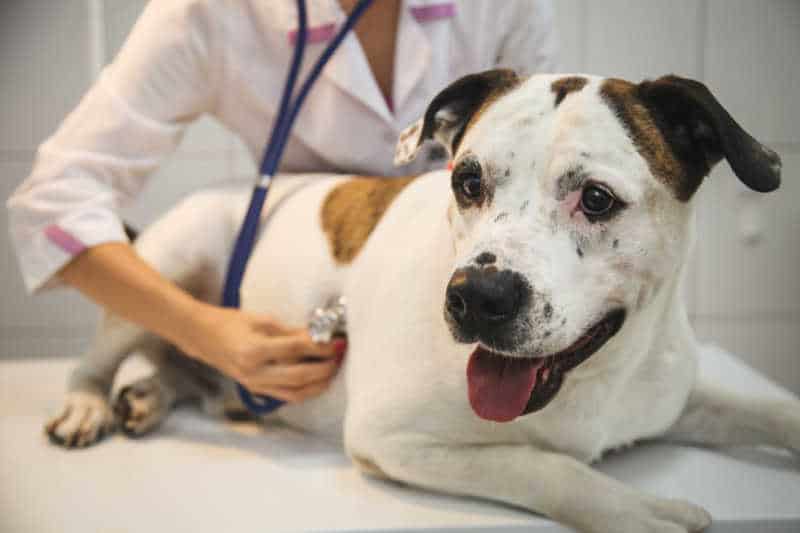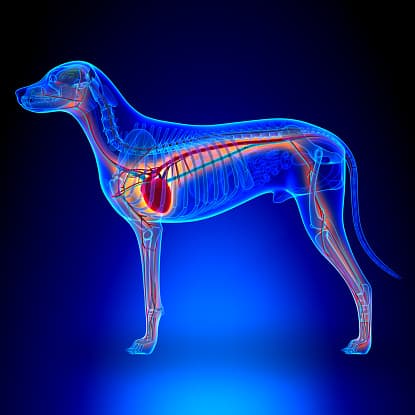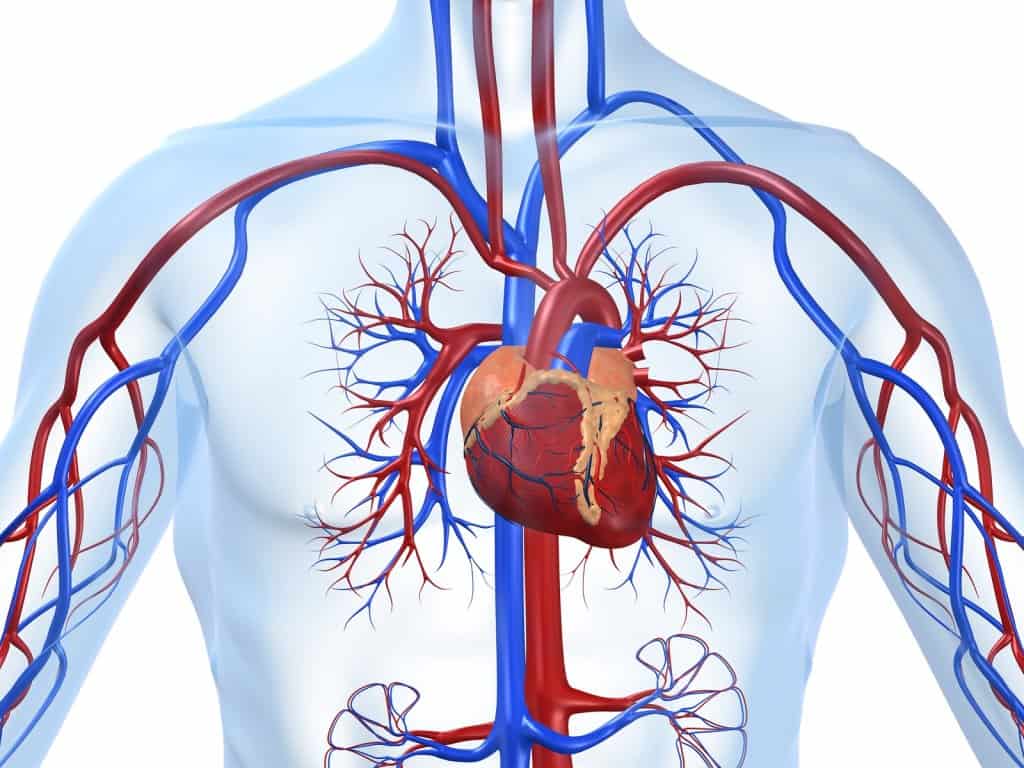If you have ever owned a dog, you know just how big of a heart they have.
But as large as your dog’s heart may be, the anatomy of the heart may reveal that it is actually not huge—at least in the physical sense of the word.
The heart is a muscle that pumps blood through the body. It is located in the chest, just behind the sternum (breastbone).
The heart muscle is made up of four chambers: the right atrium and ventricle, and the left atrium and ventricle.
The atria are the smaller upper chambers while the ventricles are the larger lower chambers.
The heart pumps blood through the four chambers in a continuous cycle.
The right side of the heart receives deoxygenated blood from the body and pumps it to the lungs, where it picks up oxygen and returns to the left side of the heart.
The left side of the heart then pumps oxygenated blood out to the rest of the body.
How Big Is a Dog’s Heart?
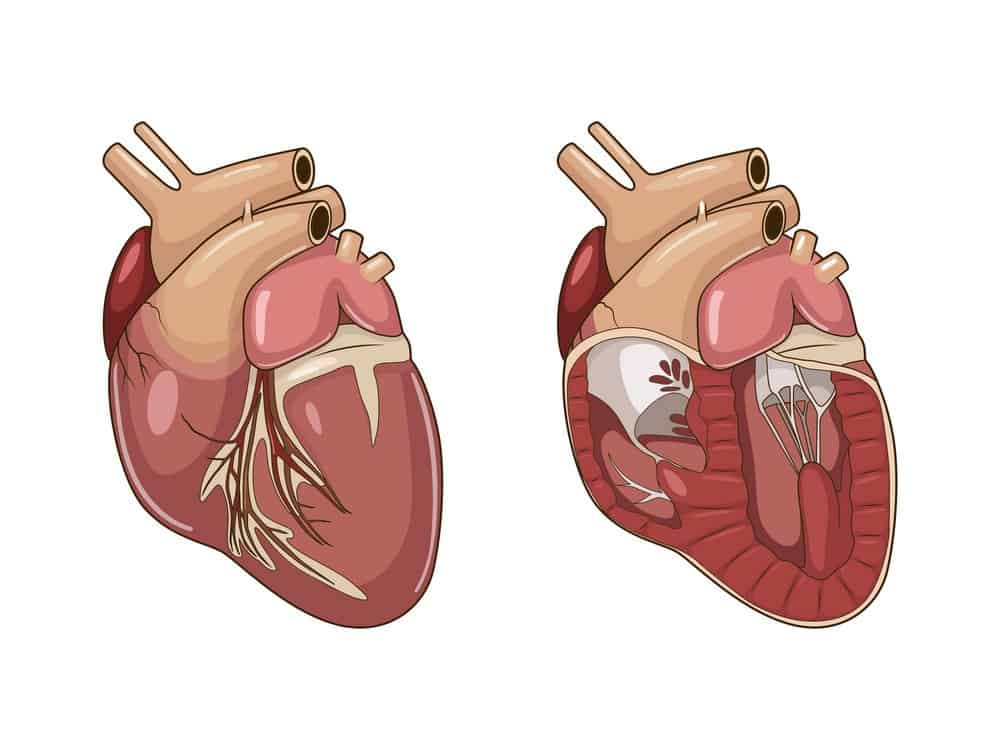
The average weight of a dog’s heart is between 9 and 12 ounces (255 to 340 grams) but the exact size depends on the size of the dog/breed.
Smaller breeds of dogs have hearts that weigh between 6 and 8 ounces (170 to 227 grams) while larger breeds have hearts that weigh between 16 and 20 ounces (454 to 567 grams).
Similarly, a dog’s heartbeat can vary depending on breed, age, activity level, and other factors.
However, the average heart rate is typically around 60-140 beats per minute.
Given their small size, it’s no surprise that a dog’s heart works harder than a human’s heart, pumping about 50-70% more blood per pound of body weight.
More active dogs have a faster heart rate. For instance, police and racing dogs can have a heart rate of up to 140 times per minute.
Puppies are also very active and can also achieve anything from 140-220 beats per minute.
Do Dogs Have The Same Size Heart?

Dogs come in all shapes and sizes, from the tiny Chihuahua to the towering Great Dane.
But do they have hearts of different sizes to match their bodies?
The answer is yes. Smaller dogs have proportionately smaller hearts, while larger dogs have proportionately larger hearts.
For instance, a Chihuahua’s heart size can be anything from grape-sized to walnut-sized depending on the age of the Chi.
On the flip side, a bigger breed, like a Great Dane, will have a heart that is the size of an adult human fist.
The size of a dog’s heart is directly proportional to how efficiently it circulates blood throughout the body.
A smaller heart doesn’t have to work as hard as a larger one to pump blood, and therefore has easier time getting oxygen to the brain and other vital organs.
This may well be one of the reasons why small dogs tend to have a longer life expectancy than large dogs.
Find other reasons here: Why Do Chihuahuas Live So Long?
Dog Heart Size Vs. Human
The main difference between a dog’s heart and a human’s heart is the size—a dog’s heart is much smaller than a human’s heart.
As we have seen, a dog’s heart can be the size of your first. On the flip side, the human heart is the size of two fists which makes it twice as large as a dog’s heart.
However, even though a human heart is much larger than a dog’s heart, it doesn’t have to work nearly as hard.
In fact, a human heart only has to beat about 60-100 times per minute, whereas a dog’s heart can beat up to 160 times per minute.
This is because dogs have a higher blood pressure than humans and therefore their hearts have to pump harder to circulate blood throughout their bodies.
Dogs have a higher percentage of ventricular muscle mass, which helps to pump blood more efficiently.
In addition, dogs have more arteries than humans. These arteries are important for distributing oxygen-rich blood to the tissues.
While the size of a dog’s heart may seem small when compared to that of humans, their hearts are actually quite powerful.
Dogs have more heart muscle per pound of body weight than humans. This means that their hearts can pump more blood with each beat.
Dogs also have a higher resting heart rate than humans. The average resting heart rate for a dog is between 60 and 140 beats per minute, while the average for humans is only about 70 beats per minute.
So, even though a dog’s heart may be small in size, it is actually quite strong and fast.
What Does It Mean When A Dog Has An Enlarged Heart?
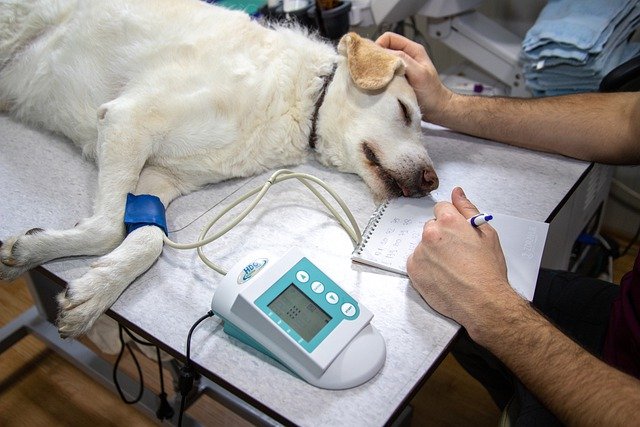
An enlarged heart in dogs, also called cardiomegaly, is a condition where the heart is larger than normal.
One of the most common causes of an enlarged heart in dogs is a condition called dilated cardiomyopathy (DCM).
This is a disease of the heart muscle that leads to the enlargement of the heart and eventually, heart failure.
DCM is most commonly seen in large breeds of dogs, such as the Boxer, Doberman Pinscher, Great Dane, and Irish Wolfhound.
Other causes of an enlarged heart in dogs include genetics, age, diet, and exercise.
Enlarged hearts in dogs can be a sign of underlying health problems and should be monitored by a veterinarian.
If your dog has an enlarged heart, your veterinarian will likely recommend regular check-ups and may prescribe medication to help manage the condition.
It is also important to monitor your dog’s activity level and avoid strenuous exercise.
You will also want to work with your veterinarian to create a diet and exercise plan that will help your dog stay healthy and improve their quality of life.
Summary
The size of a dog’s heart is directly proportional to the size of their body.
Smaller dogs have smaller hearts, while larger dogs have larger hearts. This is both true for puppies as well as dog breeds that remain small in the body even in adulthood.
For the smaller dog breeds, you can expect their hearts to be as small as a walnut while larger dog breeds have a slightly larger heart—approximately the size of a human fist.
But as small as the dog’s hearts may be, they still work like a charm round the clock to ensure your furry friend is healthy and fine.
What about your pup’s stomach? Do you know how big it is? Well, find out here: How Big Is a Dog’s Heart?
References
https://www.scielo.br/j/cab/a/TLN7ZsTH3WhTC7YjSGfRxDM/?lang=en&format=pdf
https://www.mayoclinic.org/healthy-lifestyle/fitness/expert-answers/heart-rate/faq-20057979
https://pubmed.ncbi.nlm.nih.gov/11439770/
As an Amazon Associate, we may receive a small commission from qualifying purchases but at no extra cost to you. Learn more. Amazon and the Amazon logo are trademarks of Amazon.com, Inc, or its affiliates.

